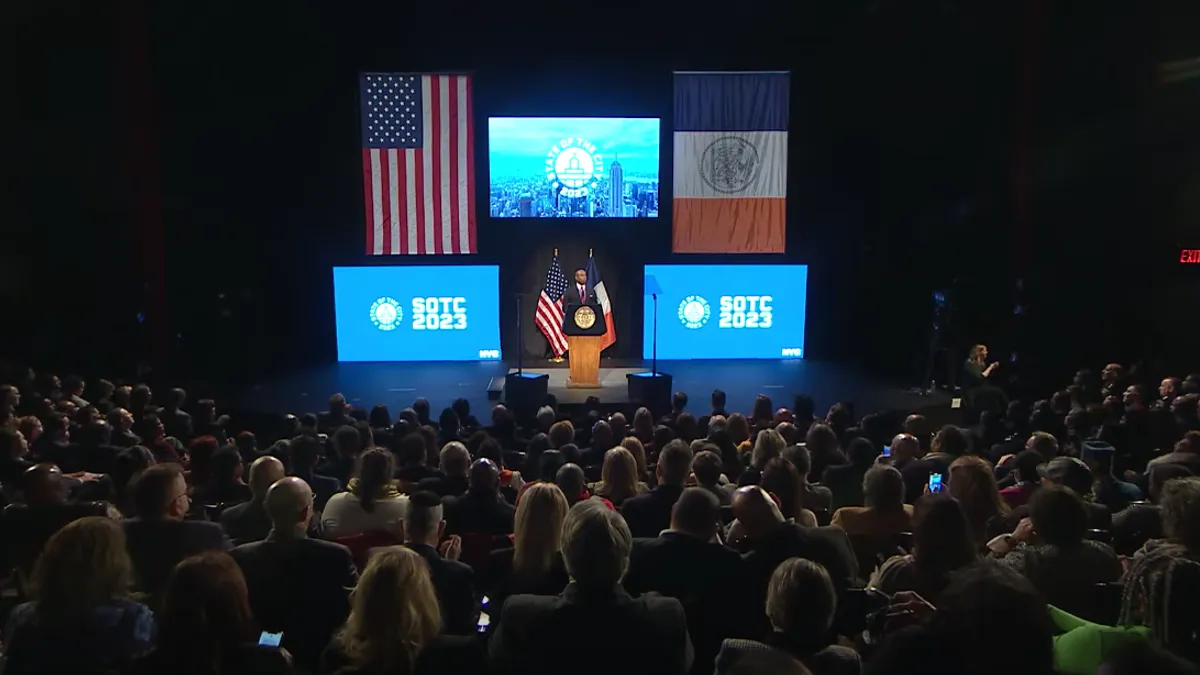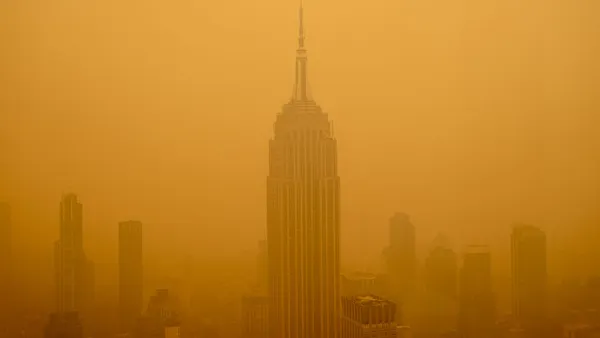Dive Brief:
- New York City officials plan for a curbside composting program to be available citywide by the end of 2024, Mayor Eric Adams said in his State of the City address Thursday.
- “Hiring our new rat czar will be just the beginning of a new era in delivering the best in public services and public spaces,” Adams said. “We’re going to get stuff cleaner by launching the country’s largest curbside composting program. By the end of 2024, all 8.5 million New Yorkers will finally have the rat-defying solution they’ve been waiting for for two decades.”
- Over a three-month period, a composting pilot in Queens diverted nearly 6,500 tons of kitchen and yard waste from landfills, Adams reported. “Imagine how much we will accomplish when every family in the city is participating. A lot of people have talked about this issue, but this administration is getting it done,” Adams said.
Dive Insight:
New York City has a goal of reducing disposal volumes 90% from a 2005 baseline and sending zero waste to landfills by 2030. The zero waste targets were announced in 2015, and multiple sanitation commissioners have said over the years that hitting the 2030 goal is not likely.
The city’s baseline was 3.6 million tons of waste disposed of in 2005 from the residential sector. In fiscal year 2022, New York disposed of 3.16 million tons of waste from curbside collection.
New York City’s latest organics collection program is the Queens pilot that began last fall, currently on a winter season pause while there’s less yard waste. The Queens pilot allows participants to use their own containers, a policy that will continue in the wider-scale program.
Material from the Queens pilot has been processed through existing city contracts. With the citywide expansion, the city won’t need additional processing capacity, but it plans to procure additional transfer options to reduce the burden on environmental justice neighborhoods in North Brooklyn.
The voluntary program will cost $22.5 million in fiscal year 2026, the first year it will be running citywide, Sanitation Commissioner Jessica Tisch told the New York Times. The Times also reported the city would have to spend $45 million upfront this fiscal year to buy new trucks to collect the compost.
New York League of Conservation Voters President Julie Tighe called the program announcement “a major step toward reaching zero-waste” in a statement Thursday. “Making this program citywide means less greenhouse gasses escaping into the atmosphere and less garbage on the street — good news for the environment, bad news for the rats.”
New York City Council Member Sandy Nurse, who chairs the Committee on Sanitation and Solid Waste Management, released a statement Thursday with fellow Council Member Shahana Hanif calling for a program that requires participation, saying that aspect has been “essential to citywide program success in other cities.”
“We are committed to codifying a mandatory citywide organics program into law this spring as part of the Zero Waste Act, to ensure it permanently remains in place, is fully funded, and cannot be rolled back,” the statement reads. “As we’ve seen in previous piloted non-mandatory efforts, such a program would undoubtedly result in less compost being collected, less efficient truck runs, and higher costs for organics processing. This is not economically sustainable and fails to reach the environmental impact that the current crisis moment demands.”
Boston Mayor Michelle Wu also highlighted curbside composting efforts in her State of the City address this week, reporting that the city collected more than 500 tons last year.













